Environmental Studies PhD Student Directory
Get to Know Our Current PhD in Environmental Studies Candidates
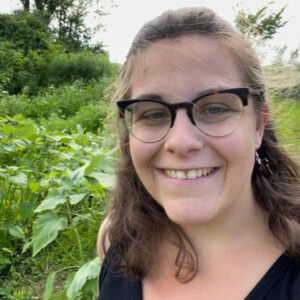
Casey Hansen
Location: Swanton, VT, USA |
Entry Year: 2023 | LinkedIn |
Dissertation Topic: Environmental Sustainability in Cut Flower Farming and Floriculture Practices
Committee chair/advisor: Dr. Libby McCann
More About Casey
My research interests involve the environmental and social impacts of cut flower production and agricultural techniques. Specifically involving soil health, pesticide use, flower quality, and locally produced verses internationally sourced cut flower products. My interests also involve agricultural practices that can better harmonize with the surrounding ecosystem, and still be a viable agricultural product.
Work Experience
For most of my career, I have been in education. I have educated infants through adults. Currently, I teach at both the secondary and undergraduate levels, focusing on math and science-related courses.
Education
BS Molecular Genetics - UVM
MS Curriculum & Instruction - WGU
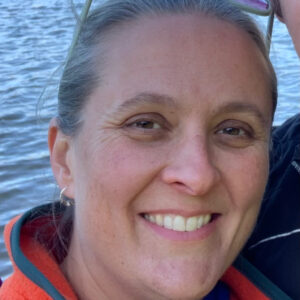
Sarah Berlinger
Location: Ashby, MA, USA |
Entry Year: 2024 |
Committee chair/advisor: Dr. Peter Palmiotto
More About Sarah
Research Interests
Ecological relationships in terrestrial ecosystems; impacts of bryophytes and lichen
Work Experience
Littleton High School - Life-Science teacher
Education
BA Geology, Wellesley College
MEd Secondary Biology Curriculum and Teaching, UMass Lowell
MA Biology, Fitchburg State University
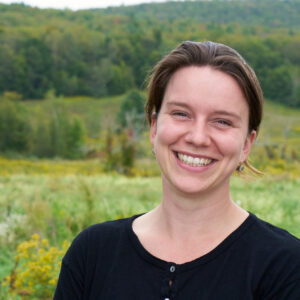
Avalon Bunge
Location: Gallatin, NY, USA |
Entry Year: 2024 | LinkedIn | Pottery Website |
Dissertation Topic: Ecological restoration of Northeastern open landscapes; the role of citizen science and practitionership in restoration and land management
Committee chair/advisor: Dr. Rachel Thiet
More About Avalon
Research Interests
I am interested in restoration practice (installation and management) of native ecologies especially in old-field and open landscapes in the Northeastern US. This includes the role of non-professionals (municipalities, schools, public organizations) and volunteers in decision-making and stewardship of these restored landscapes. Research interests also include the role of introduced and invasive species and white-tailed deer overabundance on long-term sustainability of restoration projects, and the intersectional environmental philosophy of native species, novel ecosystems, climate resilience, land relations and land justice.
Work Experience
Ecological restoration projects management; environmental and climate education (pre-k -12); outdoor and marine education; agricultural development and technical assistance
Education
MS Ecosystem Restoration - Suny ESF 2017
BA Geology - Colgate University 2015
Publications
Bunge, Avalon, et al. “Urban foraging for food security and sovereignty: Quantifying edible forest yield in Syracuse, New York using four common fruit- and nut-producing street tree species.” Journal of Urban Ecology, vol. 5, no. 1, 1 Jan. 2019.
Hobbies and Other Interests
Making anything - ceramics, knitting, quilting, sewing, mending, and miscellaneous crafts, especially with friends and/or dogs present!
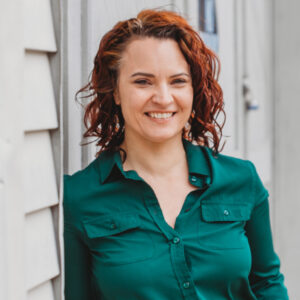
Jenny Everett King
Location: Manchester, NH |
Entry Year: 2022 | LinkedIn |
Committee chair/advisor: Dr. Meaghan Guckian
More About Jenny
Research Interests
I am interested in individual and community self-identity and how this is influenced by relationships with the natural outdoor environment, particularly in urban areas and built environments.
Work Experience
Executive Director, Home Base Collaborative Family Counseling
Education
Master of Social Work, University of New Hampshire
Hobbies and Other Interests
Counseling

Shannen Rivadeneira
Location: New York, NY, United States |
Entry Year: 2021 | LinkedIn
More About Shannen
Biography
Professionally, I reside in the accredited zoo & aquarium world working toward increasing levels conservation capacity for different audiences (youth, adults, teachers, staff). My research interests focus on improving coexistence within different forms human-wildlife conflict through community-based conservation approaches. Legal and illegal wildlife trade are of particular interests for their scale and complexity, especially through the lens of environmental intersectionality.
Research Interests
Human-wildlife conflict and coexistence, wildlife trade
Work Experience
For most of my career, I have been in education. I have educated infants through adults. Currently, I teach at both the secondary and undergraduate levels, focusing on math and science-related courses.
Education
M.S. Conservation Biology - University of Central Florida
B.S Biological Sciences-Zoology - Florida State University
Publications
Cranston, K. A., Wong, W. Y., Knowlton, S., Bennett, C., & Rivadeneira, S. (2022). Five psychological principles of codesigning conservation with (not for) communities. Zoo Biology, 41(5), 409–417. https://doi.org/10.1002/zoo.21725
Hobbies and Other Interests
Weight lifting, scuba diving and exploring
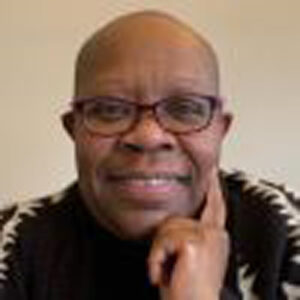
Talatha Kiazolu Reeves
Location: Frederick, MD, USA Entry Year: 2021
Dissertation Topic: Medicinal plant conservation in West Africa Committee chair/advisor: Dr. Julia Gibson
More About Talatha
Education
MA, Measurement & Evaluation, American University; MA Therapeutic Herbalism, Maryland University of Integrative Health, MDiv Masters in Divinity, Gordon-Conwell Theological Seminary
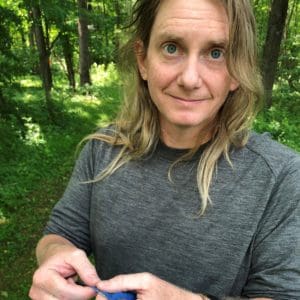
David Mitchell
Location: Lovettsville, VA
Entry Year: 2021
Dissertation Topic: Equity and Inclusion in Biodiversity Nomenclature
More About David
Research Interests
My research interests are defined in recognizing and responding to the inequities represented by the names and naming of taxa. Who names taxa? Who decides who names? What is the historical context of the naming activity, how do names impact society and the environment, and what should the human and digital futures of names and naming look like? I view this scholarship happening at the intersection of two of the world's greatest problems - bigotry and climate change.
Education
MSc Tropical Ecology, James Cook University
Publications
Mitchell, D., Bowman, L. & Brockmeier, C. Building a Taxonomic Data Editor: ITIS Taxonomic Workbench 6.0. Biodiversity Information Science and Standards 1, e19965 (2017)
Mitchell, David, Arthur Jones, and Jean-Marc Hero. Predation on the Cane Toad (Bufo marinus) by the Black Kite (Milvus migrans). Memoirs of the Queensland Museum 38 (1995): 512

Kathryn Clemens
Location: Columbus, OH |
Entry Year: 2021 | LinkedIn
Dissertation Topic: Prioritizing Indigenous People and Local Community Leadership in Conservation Messaging to Promote Socially Just Conservation
Committee chair/advisor: Dr. Meaghan Guckian
More About Kathryn
Research Interests
Throughout my decade-long career working in zoos and conservation, I rarely heard stories outside of a Western perspective. This changed as I traveled and connected with more people from different cultures and backgrounds. I heard stories of people with different perspectives and deep connections with wildlife who did not believe they had any voice in conservation. When I returned to the US, the narratives I continued to hear within zoos and other conservation organizations lacked nuanced realities and experiences from outside the Western gaze.
Education
BSc Animal Science, Minors in Physical Anthropology & Human Animal Interactions from The Ohio State University & MA Biology from Project Dragonfly at Miami University
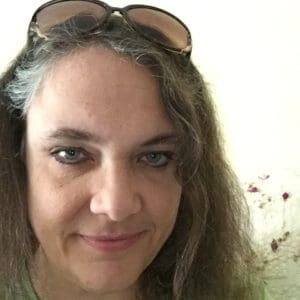
Nadya J. Bennett
Location: Camden, ME
Entry Year: 2020 | LinkedIn
Committee chair/advisor: Jason Rhoades
More About Nadya
Education
BS in Human Sciences and Services at University of Rhode Island; MS in Natural Resources at The Ohio State University
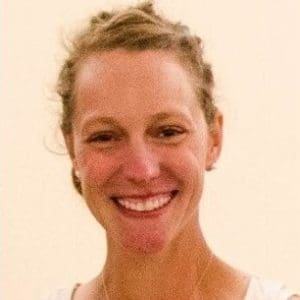
Shanna Demers
Location: Merrimack, New Hampshire
Entry Year: 2020 | LinkedIn
Dissertation Topic: Role of cryptogamic communities (bryophytes, lichens, biological soil crusts) in temperate pine barren ecosystems
Committee chair/advisor: Dr. Rachel Thiet
More About Shanna
Education
BS Biology, Minot State University; MS Plant Pathology, North Dakota State University
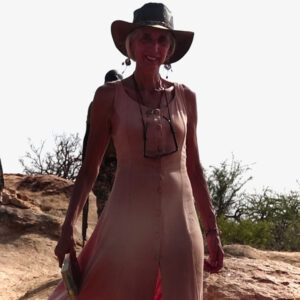
Kimberly Ellis
Location: Carnelian Bay, CA, USA |
Entry Year: 2020 |
Dissertation Topic: A Forthright Look at “Wildlife Conservation”: Problematic Conservation Practices
Committee chair/advisor: Dr. Jason Rhoades
More About Kimberly
Research Interests
For 26 years I lived permanently in East Africa working in four different designated wildlife conservation areas. My mentors and my portfolio was to rehabilitate lions, leopards, & wild dogs to the wild and create a rhino sanctuary. We were also tasked to support the infrastructure development of the 2 reserves where I worked and collaborate with the government personnel to protect the area. I also served as the recorder of our experiences via written, audio and visual means.
14 years later, as I look back on my 26 magical years living in the bush and reflect on my academic graduate education centered on the subject of wildlife conservation in East Africa. I learned about colonialism, political ecology fortress conservation all the while discovering where power lies and the reason behind so much civil conflict in these countries (and even in America) because the injustices wreaked on the Indigenous people of these lands. All the conservation travesties that include fortress conservation, settler colonialism, putting political economy above all else & way too much foreign influence that support personal agendas but not the people or the land.
My thesis will be a memoir incorporating my personal experiences and all that I have learned—an ongoing inquiry-- and the new conservation practices I wish to promote in service to the environment and helping the original inhabitants reclaim as much as possible what they lost in the colonial conservation bargain. I want the reader of my thesis to understand that we must endeavor to transform conservation by decolonizing its practice.
Education
BA in English from U of Colorado at Boulder other Undergraduate colleges in USA & France.
2 masters Interdisciplinary Environmental Studies: 1 from Prescott College in Environmental Studies & Humanities and 1 from AUNE in Interdisciplinary Environmental Studies
Hobbies and Other Interests
swimming laps, being around water, yoga, meditation, long walks with my dogs, hanging out with wildlife, some tennis, some skiing (water & snow) anywhere with an expansive view, writing, making films & watching films. Well, there's more but that's enough
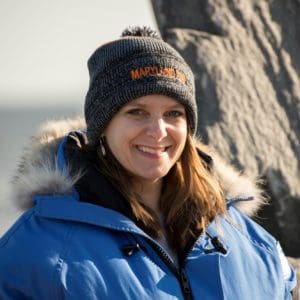
Sharon Bowen
Location: Westminster, MD
Entry Year: 2019 Dissertation
Topic: Zoo soundscapes
Committee chair/advisor: Lisabeth Willey
More About Sharon
Biography
Sharon is currently an Education Manager at the Maryland Zoo in Baltimore, where she serves on the Conservation Strategic Planning and Zoo Research Advisory Committees, and chairs the Interpretive Plan Working Group. She also serves as an advisor to Chimpanzee SAFE and is a member of the Research & Technology Committee of the Association of Zoos and Aquariums. She is a NNOCCI Study Circle alum and was a 2019 participant in Polar Bears International’s Climate Alliance Program. She is also a certified Editor in the Life Sciences.
Research Interests
zoos, soundscape ecology, sensory ecology, animal welfare
Education
BA French, Agnes Scott College; BS Biology, Towson University; MS Conservation Biology, University of Maryland
Work Experience
Education Manager, Maryland Zoo in Baltimore (current); Science Editor (freelance); Science Content Supervisor; Science Editor
Hobbies and Interests
Conservation psychology, languages, classical music, all things Disney
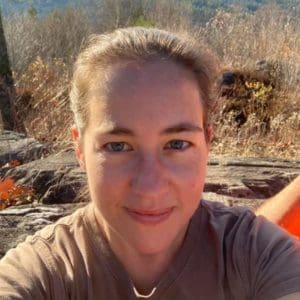
Rachel Brice
Location: Keene, NH
Entry Year: 2019 | LinkedIn
Committee chair/advisor: Libby McCann
More About Rachel
Research Interests
I am interested in organizational resilience, particularly as it applies to organizations who work to advance food sovereignty (the right of peoples to healthy and culturally appropriate foods produced through environmentally sustainable means, and the right to define their own food systems).
Education
MS Environmental Studies, Antioch University New England; BA English Literature, Goshen College
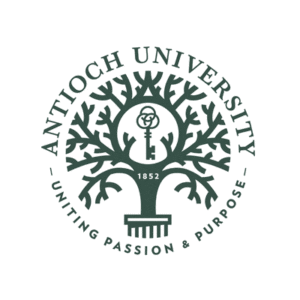
Jennifer Smith
Location: Grand Falls, AZ (Navajo Nation)
Entry Year: 2019
Dissertation Topic: Integrating respective ancestral plant knowledge through Environmental Education parallel to Navajo Education and philosophy approaching synergistic Indigenous adolescent behaviors
Committee chair/advisor: Alesia Maltz
More About Jennifer
Work Experience
Currently providing oversight and expertise to a variety of projects in USACE Seattle District as a Physical Scientist in Environmental Engineering And Remediation Technical Services. Experienced Instructor with a demonstrated history of working in the higher education industry. Skilled in Site Investigation, Brownfield, Environmental Services, Environmental Science, and Groundwater Remediation.
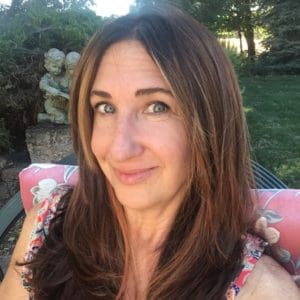
Mary Jo Austin
Location: Eagle Point, Oregon
Entry Year: 2016 | LinkedIn
Dissertation Topic: The relationship between traditional practices, attitudes towards wildlife, and ape proximity to rural communities in the eastern Democratic Republic of Congo
Committee chair/advisor: Beth Kaplin
More About Mary Jo
Research Interests
My research interests are exploring the ways rural communities value wildlife through traditional practices, attitudes and resource use to better understand factors that may contribute to or undermine African ape conservation.
Education
MSc, Environmental Studies, Antioch University New England, MSc Resource Management, Central Washington University
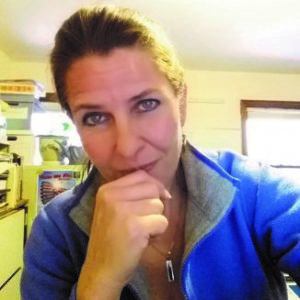
Chrystal Dunker
Location: Spokane, WA |
Entry Year: 2016 | LinkedIn
Dissertation Topic: Nature Interaction Assists with Coping and Resilience: An Interaction Pattern Case Study Approach with Adolescents with Histories of Trauma in a Youth Group Home
Committee chair/advisor: Jean Kayira
More About Chrystal
Research Interests
My research interests center on further developing our understanding of human-nature interaction patterns (IPs) and interaction pattern theory to explore why we do what we do with the rest of nature, helping us to understand the significance of the nature we are drawn to and with which we engage. Through the lens of ecopsychology, I am interested in continuing to find a way to speak about patterns of human-nature interaction that can help others comprehend their significance; the deeply meaningful, psychologically relevant, and evolutionarily important relationships with the natural world. This way of speaking is called ‘nature language.’ I aim to continue to build upon this language to help others understand how interacting with nature helps us to build resilience, particularly for those who need it most.
Education
MS, Interdisciplinary Environmental Studies, Antioch University, Keene, NH; MS, Natural Resources Public Information and Education, University of Idaho, Moscow, ID; BS, Wildlife Resources Management, University of Idaho, Moscow, ID
Work Experience
I am currently the Managing Editor for Ecopsychology, a peer-reviewed journal. Previously, I spent over 25 years in environmental and outdoor education, including 18 years as Executive Director and Lead Naturalist of a regional nonprofit mobile environmental education center. In this role, I led programs across southern and western Minnesota, guiding people of all ages in exploring local natural areas. Additionally, I served as an adjunct instructor, specializing in teacher education with a focus on nature-based curricula and outdoor teaching methods.
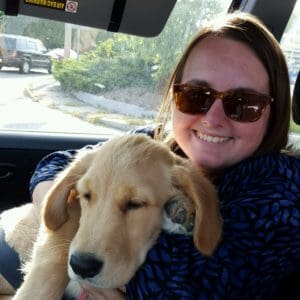
Lisa Heller Boragine
Location: Raynham, MA
Entry Year: 2015 | Website
Dissertation Topic: How do experiences with game-based learning in two undergraduate higher education classrooms impact student understanding and concern about climate change?
Committee chair/advisor: Jason Rhoades
More About Lisa
Biography
Born in Colombia, South America, dual national citizenship (Colombia and USA.) I grew up primarily in the United States. I have lived most of my life in Massachusetts, but enjoy international and intercultural contexts as well.
Research Interests
I research the use of game based learning in undergraduate educational institutions with a specific focus on the use of games in the classroom as a teaching tool for complex environmental issues such as climate change.
Work Experience
I'm a full-time tenured Associate Professor of Communication at Cape Cod Community College located in West Barnstable, Massachusetts. I've been teaching at the college level for 25 years and have taught everywhere from public funded two-year to privately funded four year institutions. I teach face to face, partial online, and fully online courses in communication I also moonlight as an adjunct instructor at Bridgewater State University and Stonehill College where i teach courses in public speaking, sustainability and environmental communication.
Throughout my years of service, I have served on curriculum and programming committees, assessment committees, NEASC accreditation committees, all of which give me a very strong understanding of how different administrative constituencies influence and affect curriculum decisions.
Publications
Boragine, L.H. (2023). Roll the Dice: Using Game-Based Learning to Teach Sustainability in Higher Education. In: Leal Filho, W., Lange Salvia, A., Pallant, E., Choate, B., Pearce, K. (eds) Educating the Sustainability Leaders of the Future. World Sustainability Series. Springer, Cham. https://doi.org/10.1007/978-3-031-22856-8_4
Boragine, L. (2023) Using Educational Escape Games to Teach and Engage Students. Today’s Learner. February 3. https://todayslearner.cengage.com/using-educational-escape-games-to-teach-and-engage-students/
Boragine, L (2022) Why I’m proud of teaching through a pandemic. Today’s Learner. November 23. https://todayslearner.cengage.com/why-im-proud-of-teaching-through-a-pandemic-lisas-story/
Boragine, L (2021) What I learned as a Dual Enrollment Instructor. Today’s Learner. September 17. https://todayslearner.cengage.com/what-i-learned-as-a-dual-enrollment-instructor/
Reichwein, S. and Heller-Boragine, L. (2016) MindTap for Public Speaking. Online curriculum for introductory public speaking class. Cengage Learning, Boston, MA
Heller-Boragine, L. 2015. Communication Studies 10-year Performance and Program Review. Final Report for Cape Cod Community College Office of Academic and Student Affairs, West Barnstable, MA
Heller-Boragine, L. 2014. How-To Guide and Move-Out Manual for College Moveout Give-and-Go. Keep America Beautiful and Goodwill Industries.
Hobbies and Other Interests
American Vet Dogs Certified Volunteer Puppy Raiser.
Reading and writing science fiction, particularly interested in the popular treatment of environmental apocalyptic scenarios in popular media and novels.
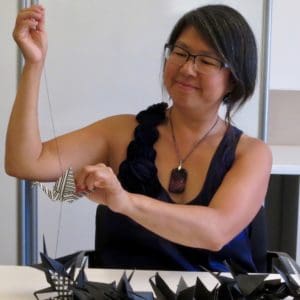
JuPong Lin
Location: Amherst, MA
Entry Year: 2019 | Website
Dissertation Topic: intersectional ecojustice, culturally-rooted contemplative art, decolonial aesthetics
Committee chair/advisor: Gopal Krishnamurthy
More About JuPong
Biography
JuPong Lin is a Taiwan-born interdisciplinary artist-researcher, writer and educator who creates spaces to expand our capacity to metabolize or recover from trauma. Viewing climate change as a form of collective trauma, JuPong’s work explores how culturally-rooted contemplative practices can bridge personal healing with organizing for collective action in resistance to climate injustice. Her installations and community performances blend paper-folding, poetics, story circle and qigong. As a de/colonizing artist and ceremonial activist, JuPong is dedicated to reclaiming ancestral traditions and language liberation and offers workshops to cultivate kinship between peoples, land, other-than-human beings and our beloved 地球 (earth).
Research Interests
My dissertation research aims to understand how contemplative ecoart practices, rooted in East Asian ancestral practices and knowledge, can repair and restore our beloved places, to heal from generations of ecocide.
Hobbies and Interests
gardening, herbalism, knitting, paper folding
Work Experience
2020-current Program Chair, MFA in Interdisciplinary Arts Program, Goddard College 2019-current Adjunct Faculty, Arts Extension Service, University of Massachusetts, Amherst 2015-2019 Program Director, MFA in Interdisciplinary Arts Program, Goddard College
Publications
2021
Lin, JuPong, and Devora Neumark. “Instructions for Being Water: A Performance Score.” In Signs of Water: Community Perspectives on Water, Responsibility, and Hope., edited by Rob Boschman and Sonya L. Jakubec. Arts in Action. Calgary, Alberta: University of Calgary Press, 2022.
Lin, JuPong, “Wild Onions,” “Under Cedar Boughs,” and “When We Can Breathe.” McGloughlin, Lis, editor. Honoring Nature: An Anthology of Authors and Artists Festival Writers. Human Error Publishing, 2021.
2020
Lin, JuPong. “1000 Gifts of Decolonial Love”, Dark Matter, Issue 11, September, 2020
Lin, JuPong, and Devora Neumark. “Contemplating Climate Justice, Cultivating Resilient Communities.” In Oxford Handbook of Drama, Theatre, Improvisation and Wellbeing, 2020.
Lin, JuPong, and Devora Neumark. “Scores for Climate Justice.” In Provocations, Pedagogies, and Other Strategies; Teaching Ecological Art, Guidance from the International Ecoart Network
2018
Lin, JuPong, and Devora Neumark. “A Brief Overview of ‘Instructions for Being Water: A Performance Score.’" In Emergency Index, Yelena Gluzman and Matvei Yankelevich, Editors. Brooklyn: Ugly Duckling Press.
2016
Lin, JuPong. “A Yinyang, Ecocritical Fabulation on Doctor Who.” In J. Canty (Ed.) Edges of Transformation: Multicultural Women’s Voices on the Intersections of Ecological and Social Healing, pp. 163-178
2014
Lin, JuPong. “The Media Ecosystem: What Ecology can Teach Us about Responsible Media Practice,” book review in the Journal of Media Literacy Education 6:1, 2014

Anna Mooney
Location: Lake Wylie
Entry Year: 2014
Dissertation Topic: Race Equity in Environmental Education
Committee chair/advisor: James Karlan
More About Anna
Research Interests
Race equity trainers' perceptions on moving Environmental Education toward race equity.
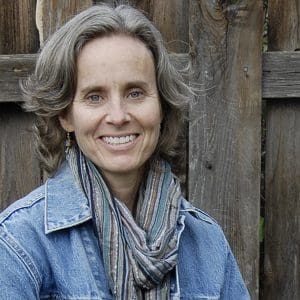
Deb Matlock
Location: Lafayette, CO
Entry Year: 2010 | LinkedIn
Dissertation Topic: Inter-species Communications: Personal Stories and Insights for Environmental Education
Committee chair/advisor: Jean Kayira
More About Deb
Deb Matlock grew up in the mountains of Colorado and is deeply committed to nurturing the connection between people, animals, earth, and spirit. She has spent twenty-five years working as a professional environmental and humane educator and naturalist. Deb offers shamanic-style spiritual guidance, animal communication, nature connection workshops, and retreats through her business, Wild Rhythms. She is passionate about helping people find connection and deep spiritual meaning in their lives and in the places where they live. Deb holds a Master of Arts in Environmental Education from Prescott College and is pursuing her doctoral degree in environmental studies at Antioch University New England.

Start your Antioch Journey
Take your next step - talk to our admissions team to find the right program for you.
